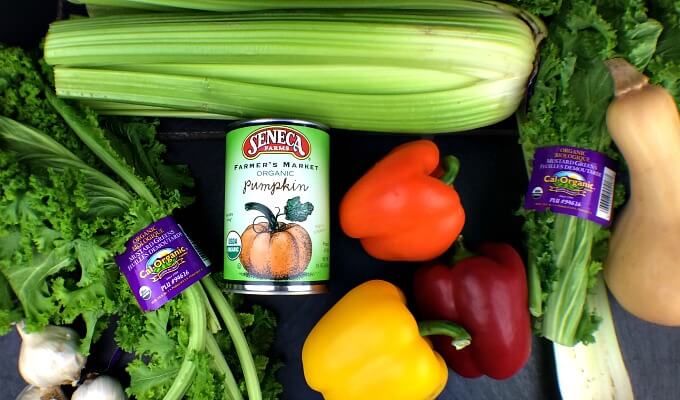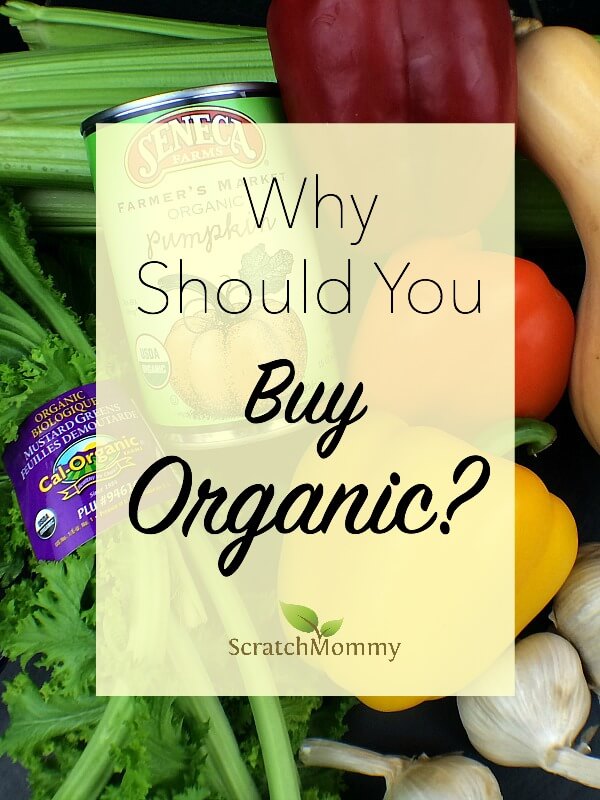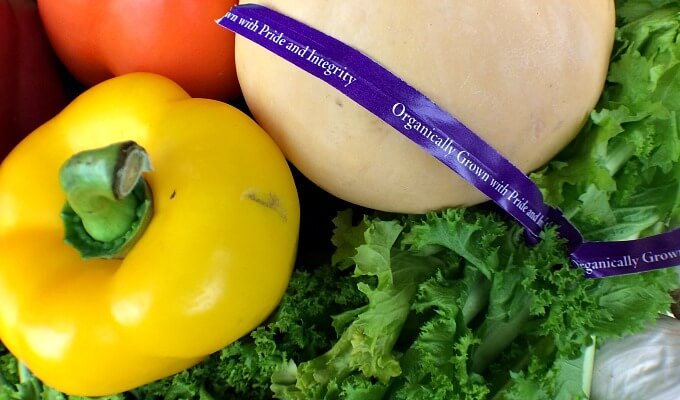So, you’re a mom with a budget… Why buy Organic? Is Organic really a label worth paying more for?
While many of us want to support small local farms or to grow our own food, and some of us can and do, it’s an unrealistic option for the majority of Americans. There are barriers that will take time and organic produce is a convenient bridge. The organic industry is doing a good job in an imperfect world. They offer an important alternative.
But, with that said, let’s look at where the organic industry is falling short, where we can give praises, and conclusions of it all:
IT’S TRUE
- Organic farms are allowed to use organic pesticides. A list of these can be seen here.
- Organic farmers must pay expensive fees to the government to be certified, which can limit their profits, time, and how many farmers participate in the program.
- Ethylene, chlorine, and peracetic acid are all used on organic foods; often ones being imported from tropical countries, to ensure food safety.
- Shocking and corrupt components may exist within the organic industry. Here’s one example.
- Organic food costs more.
ON THE UPSIDE
- Being an educated consumer, I wash all my produce carefully, in case even organic pesticide residue remains.
- Because of human fallibility most organizations will have some element of imperfection. I do not ask if the organic industry is perfect. I ask whether it is far superior to the conventional means of growing, both for my health and for the environment.
- Because buying in bulk lowers prices, co-ops are an excellent source for organic goods. Many organic co-ops provide community discounts for lower income families, making organic food more accessible. Programs also apply in many states where vouchers can be used like food stamps at farmers’ markets.
- Organic farmers are required to prevent pests through crop rotation and traditional practices which encourage pollinators and discourage pests. They must use these means first before using organic pesticides.
- The organic movement stresses the process of farming, rather than the input of materials to achieve a desired outcome.
- The government fees required from organic farmers pay for inspections that keep standards high- such as no GMO seeds and the types of pesticides that have been deemed safe by the National Organic Standard Board.
- The OTA (Organic Trade Association) never tolerates GMOs. 100% organic always means GM-free; yay!!! Deep breath.
- I am not a fan of chlorine or other harsh chemicals that kill bacteria. As an informed consumer, I can choose not to buy imported produce or to wash it carefully if it’s traveled internationally. I understand that the government needs to show extreme caution to prevent the spread of food borne bacteria. I would rather they use essential oils and apple cider vinegar to kill bacteria; but since they don’t I eat those foods seldom and try to buy more locally grown, in season produce items.
- Organic processors are required to trace all their products to the source. They must know, for instance, from which farm every tomato came. It is a federal requirement that no conventional produce can be combined with organic.
- While organic certification is expensive, so is Fair Trade. The price is not a reflection of someone getting rich at the top. As consumer demand increases, these prices go down. In the meantime these organizations provide a high standard on a global scale.
- Organic gives you complete assurance of the working conditions for laborers (in the U.S., and internationally, conventional agricultural workers are often required to work long hours with low pay and no benefits). Additionally, on an organic farm the workers are not exposed to toxic chemicals.
- I have often heard pastured meat farmers say they are predominantly grass and soil farmers. What do we think of the soil quality that results from conventional farms? We have to take care of our soil. Organic farms are mindful of this. They are required to rotate their crops and harsh chemicals are not used. Perhaps you’ve heard it said that our produce is not as healthy as it would have been 100 years ago? This is due to the depletion of minerals, bacteria and fungi that should naturally exist in the soil. It is well documented that conventional produce has less nutrition than organic!
- In regard to animal husbandry, no antibiotics or growth hormones are given to animals that are certified organic.
- New methods of organic farming continue to emerge, based on ancient wisdom and a desire to reverse climate change. One such method is the no-till agriculture combined with cover-cropping.
- BeyondPesticides.org says, “Although the choice to be certified or not lies with the farmer, one important and compelling reason to be certified is to show the USDA the true prevalence of organic agriculture in order to encourage research on organic production. Organic farming research has historically been underfunded by the USDA…”
CONCLUSIONS
- Buying from local farms is best. You know the farmer and how they raise your food. Produce is not being trucked in from another state or country, using excess fossil fuels and harsh anti-bacterials. Also, local food is picked at its peak of ripeness so it is inherently more nutritious than food picked under-ripe that must be shipped before it spoils.
- Frozen organic produce is also a good option nutritionally; because it, too, was likely picked when ripe.
- When local, sustainable produce is inaccessible (not everyone can get to a good pesticide-free farmer’s market) the organic label at grocery stores is a great alternative.
- Organic provides complete assurance of no GMOs.
- We live in an imperfect world. Criticizing the organic industry does have some benefit: it keeps up the accountability factor. Given this, the organic industry does not wreak to me of a predominantly corrupt organization. They are providing a decent option and a great alternative to conventional agriculture. We don’t reject the whole system.
- Conventional produce gives us no reassurances. Pesticides and chemical fertilizers are overused with limited regulation.
- Organic produce is more nutritious than conventional.
- Our quality water supply is also affected by the use of pesticides. Supporting conventional agriculture promotes an ongoing problem.
- The way to make a change is not to stick with the status quo and their egregious monetary motivations. We need to support, instead, local sustainable farms first and the organic industry second.
- I do not recommend organic factory-made foods. These are still highly processed and not nourishing to the body. While they are superior to their conventional counterparts certainly, the spirit of a Scratch Mommy encourages us all to make home made foods more and to buy processed foods less.
TIPS
- When buying from local farms that aren’t organic, ask them about their practices: Do they spray? Do they use synthetic fertilizers? Do they rotate their crops?
- With summer upon us, remember which foods to avoid conventional at all costs: strawberries, blueberries, nectarines and peaches! Also apples, potatoes, spinach, all peppers, celery, cucumbers, tomatoes, grapes, and leafy greens.
- Check into the CSA programs that local sustainable farms offer. You will get more produce for your money with these deals, and help provide a guaranteed income to the local farm as well. You are buying what they have a surplus of, thus freshly picked food with optimum nutrition and lower prices. They will usually throw in fun stuff like berries, melon, tomatoes or exciting veggies.
The USDA is currently working on a new certification: CNG. It’s supposed to be a less expensive alternative to the organic certification for farmers. We can watch to see what this option provides. In the meantime, I have no confidence or comfort from conventional agriculture. Organic has my vote.




Comments 1
I choose organic because its free from chemicals. We buy vegetables from framers, but they too lack natural taste. Because the farmers are following hybrid cultivation.
Hope to find some organic farmers to but really nutritious food.